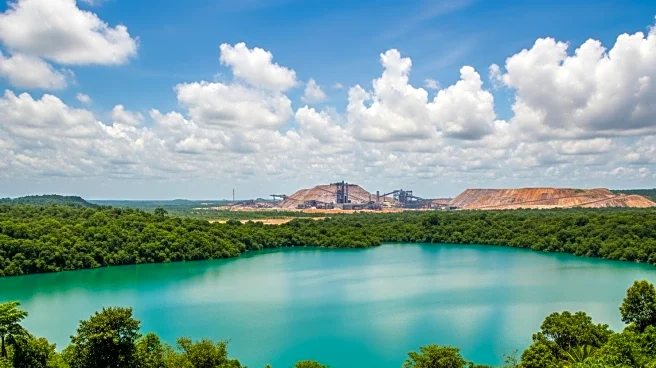What's Happening?
The Indonesian government has permitted the resumption of operations at a nickel mine on Gag Island, part of the Raja Ampat archipelago, despite environmental concerns. The mine, operated by Gag Nikel, a subsidiary of Aneka Tambang, had its suspension lifted on September 3. The area is known for its pristine reefs and is a popular diving destination. The Ministry of Energy and Mineral Resources has given Gag Nikel a 'green' rating, indicating compliance with environmental standards. However, environmental groups, including Greenpeace Indonesia, have raised alarms about potential irreversible damage to the marine ecosystem, which hosts a significant portion of the world's coral species.
Why It's Important?
Indonesia holds the world's largest nickel reserves, crucial for electric vehicle batteries and stainless steel production. The reopening of the mine is part of Indonesia's strategy to boost domestic industry following a 2020 export ban. While this move supports economic growth, it poses risks to the environment, particularly in the ecologically sensitive Raja Ampat region. The decision highlights the ongoing tension between economic development and environmental conservation, with potential long-term impacts on biodiversity and local communities reliant on tourism.
What's Next?
The Indonesian government plans to continue monitoring Gag Nikel's operations to ensure environmental compliance. However, environmental activists are likely to persist in their opposition, potentially leading to further scrutiny and pressure on the government. The balance between economic interests and environmental protection will remain a contentious issue, with possible implications for Indonesia's international reputation and its commitment to sustainable development.
Beyond the Headlines
The reopening of the mine raises broader questions about Indonesia's environmental policies and the effectiveness of its regulatory framework. The situation underscores the challenges faced by countries with rich natural resources in managing exploitation while preserving ecological integrity. It also highlights the role of civil society and international organizations in advocating for environmental protection and sustainable practices.











